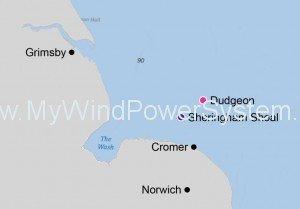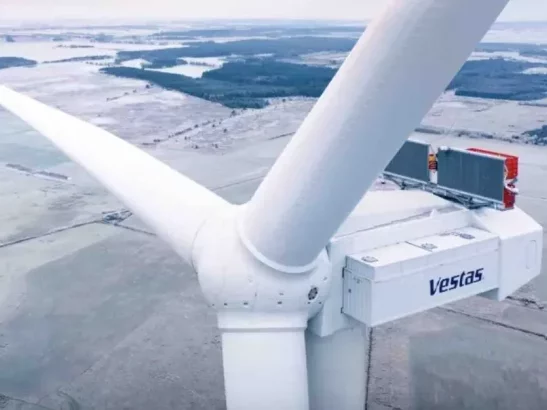Eight major renewable energy projects, expected to support 8,500 jobs, have been given government approval. They include 5 offshore wind projects and 3 Biomass projects. The contracts are the first awarded under the UK government’s energy market reforms. The Coalition Energy Secretary Ed Davey said the projects would help power up to three million homes and to attract £12bn in private investment.
The eight projects will all receive one of the government’s Contracts for Difference (CfDs), which effectively guarantee prices for renewable energy suppliers. What about subsidies? They could cost up to £1bn each year in subsidies, but the Government says they would encourage firms to invest much more than that in low-carbon electricity generation.
The projects approved are:
-
- Beatrice offshore wind, Outer Moray Firth
- Burbo Bank offshore wind, Liverpool Bay
- Dudgeon offshore wind, north of Cromer (see below)
- Hornsea offshore wind, off the East Yorkshire coast
- Walney extension offshore wind, off Walney island
Mr Davey said there were more potential renewable energy projects than the government was able to back and if one of the eight initial projects did not go ahead, then another similar project would be supported. There were 57 original applications for backing. They would add 5% to the UK’s green energy supply.
Davey said:
“These investments are critical to make sure we have got secure, clean energy. These are the first wave of our reforms, designed to stimulate investment in low carbon energy, but in a more affordable way than previously.”
He said that the measures would add 2% to household energy bills by 2020, when it is hoped that nearly a third of the UK’s electricity will come through renewable means.
The Department of Energy and Climate Change said it expected the investment contracts for the successful projects would obtain parliamentary approval in May, when they would then take legal effect.
Less encouraging was the news that the Government was “looking at the access rights” to fracking under private land. Davey said:
“The question is how those land owners are compensated and how those projects can go ahead.”
Environmental campaign group Friends of the Earth said the projects would attract billions of pounds of investment and provide thousands of new jobs. A spokesman, Alasdair Cameron, said:
“It’s good that the government recognises renewable energy to be our best and most available, solution.”
However, he called on the government to abandon its “reckless pursuit” of fracking, which, he said, was “dirty, unpopular and will not deliver for years“.





